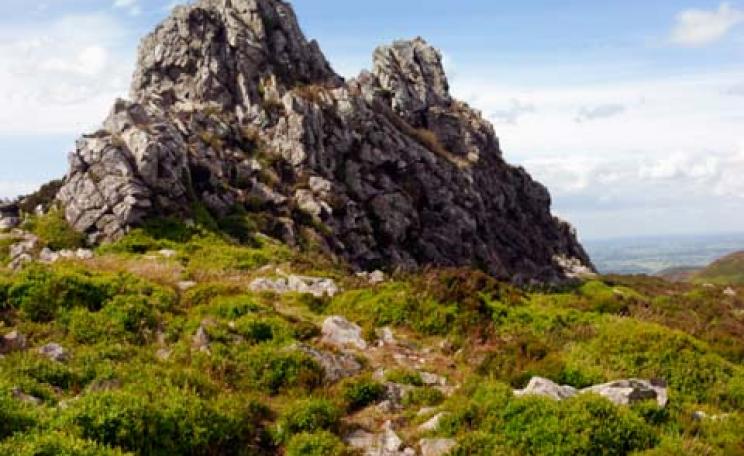The ExCel centre in London’s Docklands is one of the major organs of Britain’s body corporate. I’ve seen Shell hold its AGM there, where protesters screaming about the damage done to wildlife by the oil giant’s activities were first ignored, then bundled out of the room. A telling choice, then, for the first ever Global Business of Biodiversity Symposium, which takes place next week.
Make no mistake, this is a big deal. The companies involved as speakers, advisors, partners or sponsors of the event include the lawyers Linklaters, consultants PricewaterhouseCoopers, miner Rio Tinto, chemicals producer BASF and cement maker Lafarge – all international giants in their respective fields. On what has traditionally been seen as the other side of the fence are WWF, Conservation International, Kew Gardens and The Wildlife Trusts, among others.
And that’s the point - this ‘symposium’ is about knocking down the fence. The set-piece event will be the publication, on the first day, of the latest The Economics of Ecosystems and Biodiversity (TEEB) report, aimed squarely at and about business. The TEEB reports, led by Deutsche Bank banker Pavan Sukhdev, aim to do for biodiversity what the Stern reports did for climate change; that is, put a monetary value on something most business have previously been happy to ignore. In the words of their outline report, how do we go about ‘recapitalising nature’?
For some, this may be hard to swallow. After all, it involves letting go of the belief that nature is valuable in its own right and agreeing to fight on your opponent’s turf. I see it as reason to be hopeful. Working out how to calculate the value of nature is the first step to saying businesses have to account for the cost of causing natural damage by, say, building a road. Doing so means nature has a direct influence where it matters most, in boardroom discussions and on the bottom line. (Very) crudely put, the net result should be fewer roads being built. The big companies, Rio Tinto, PWC and co., are all there because they believe this huge change in the way the world works is almost certainly on the cards.
Yes, this means those dedicated ecologists, conservationists and anti-oil protestors who have for so long been outside the ExCel centre shouting in, will find the ground shifting beneath their feet. This will be disconcerting but, in this case, the ends justify the means.
The hidden debt
The Department of Energy and Climate Change published its quarterly Energy Trends last week. This showed Britain’s production of oil, gas and coal, along with wind, hydro and other renewables all fell over the past year, with only nuclear energy generation picking up any of the slack, increasing by just 1 per cent. Yet demand continues to go gangbusters, despite recession.
That means a lot of energy must be imported. One estimate puts the cost of doing so in 2008 at a cool £10 billion. This year will likely cost more. We hear a lot about government deficit, and our national debt. Our energy debt goes largely ignored.
| talking turkey... |
|
|
|
“If someone decides, in their newly insulated home, to turn up the dial and hoover in the nude, that will affect the energy bill"
- Energy minister Greg Barker explores the complexities of domestic life |
 |
|
| READ MORE... | |
 |
NEWS ANALYSIS Sticking with GDP could be the best safeguard for nature Although much maligned as a measurement of progress, some believe a Gross Domestic Product (GDP) measurement that includes natural capital could be the way forward |
 |
COMMENT Economists think they are invulnerable and intellectually superior. We all suffer for it 'Rational Economic Man' can be a useful mathematical construct. The trouble is, far too many economists seem to have taken him to their heart, and now believe him to be real |
 |
INVESTIGATION What will the coalition Government do about planning law? Planning - a dull subject that has a direct impact on some of the most important areas of our lives. One proposal to speed up planning has just been scrapped by the new Government. What will replace it, asks Bibi Van Der Zee |
 |
COMMENT The link between BP, geoengineering and GM BP won't stop at dangerous deep water drilling: the company is bent on still more dangerous projects, including genetic modification and hacking the planet's atmosphere... |








